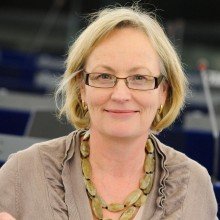Should farming continue to get grant support when Britain leaves the European Union?
How should payments be linked to environmental demands?
Who should decide what pesticides can be used on British farmland – and what restrictions do we want to set?
How will biodiversity be promoted and protected in a post-Brexit world?
These questions and more will lead the agenda of a high-profile conference scheduled to draw together experts from across the country next month.
It has been organised by Julie Girling, Conservative MEP for the South West and Gibraltar, who sits on both the Agriculture and Environment Committees of the European Parliament.
Taking place at the Royal Agricultural University in Cirencester on March 17, the conference has scheduled speakers from the National Farmers Union, the Country Landowners Association, The Cotswolds Area of Outstanding Natural Beauty and the Royal Society for the Protection of Birds.
Sessions will cover the opportunities and threats of Brexit, reshaping rural businesses and creating a new environment-friendly agriculture policy.
Mrs Girling said: “We face an uncertain world as Britain leaves the EU – nowhere more so than in the countryside.
“The Common Agricultural Policy, lists of approved and banned pest-protection products, nature conservation measures and rules restricting pollution – all have been decided at EU-level for decades and have shaped the way our countryside looks and lives.
“From the food we eat to the air we breathe and the way we treat our livestock – the influence is profound. Now we will have it find another way to address these issues independently from Brussels – and there is much work to to and a great deal to decide.
“This conference is intended start a debate that will ultimately shape what sort of countryside we want.”







